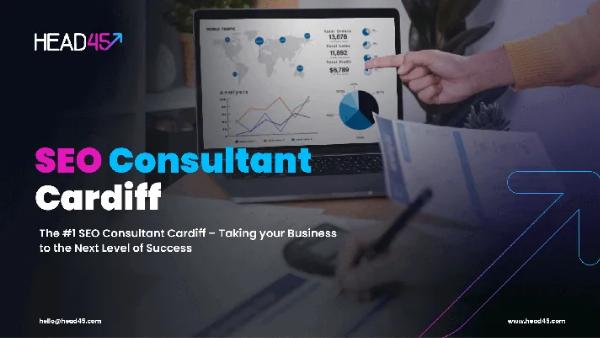Facebook Ads or Google Ads: Selecting the Best Platform

Strong 8k brings an ultra-HD IPTV experience to your living room and your pocket.
Which platform to choose between Facebook Ads and Google Ads is a recurring problem for businesses in the ever-changing world of digital advertising. Every platform has its own benefits and meets a range of business needs. We explore the specifics of Google Ads and Facebook Ads in this comprehensive overview to help businesses make decisions that are in line with their marketing objectives.
When to Use Google AdWords
For many years, Google AdWords Search advertisements have been the market-leading pay-per-click solution, putting an advertiser's business or product in front of a target audience as they search.
Unlike Facebook Ads, Google Search Ads are displayed in direct response to a customer's query. They require a local car repair firm, and advertisements are displayed for that search. When you search for wedding planners, you will see advertisements. Product searches bring up relevant product advertising.
These advertisements are significantly more inviting, have a much higher click-through rate than Facebook Ads, and nearly always result in a higher conversion rate and a cheaper cost per lead or cost per sale. Why? Customers who are looking for what they need right now are more likely to purchase than customers who are interrupted by an offer, no matter how compelling.
When to Use Facebook Ads
Facebook ads appear in the Facebook news feed, the sidebar on desktop computers, and alongside content or within apps across Facebook's network. Targeting choices are numerous and diverse, making them ideal for large-scale campaigns as well as local enterprises targeting customers with specific interests.
For businesses promoting events, Facebook's local targeting options combined with interests provide a great chance to raise awareness and interest in such events. Advertisers seeking to boost trust and confidence in their brand or product can also create niche, interest-based campaigns to generate interaction, admirers, and traffic.
Facebook's lead cards make it a great avenue for acquiring leads, such as names, phone numbers, and email addresses, which can then be followed up with email marketing messages or phone calls. However, these are ALL interruption strategies.
The targeting possibilities are undoubtedly among the most thorough of any digital platform, but advertisers continue to disturb an audience that does not want the commercials. Creating an effective campaign is difficult, and gaining direct sales using Facebook Ads is rarely an effective strategy.
Differences Between Google Ads and Facebook Ads
Examine how Google Ads and Facebook Ads differ from one another, understanding their underlying principles, ad formats, targeting options, and more.
| Aspect | Google Ads | Facebook Ads |
|
Operation Basis |
Primarily based on search intent | Targets users based on demographics, interests, and behaviours |
|
Ad Display |
Responds to user queries |
Aims to reach a broader audience regardless of search intent |
|
Ad Formats |
Predominantly text-based ads for search campaigns |
Supports various media-rich formats such as image, video, etc. |
|
Additional Ad Formats |
Display, video, shopping, app promotion ads |
Carousel ads, slideshows, etc. |
|
Visual Experience |
More focused on text-based ads |
Offers visually engaging ad formats |
|
Targeting Options |
Keyword-based targeting primarily |
Detailed targeting based on demographics, interests, behaviours |
|
Ad Placement |
Appears on search engine results pages (SERPs) and Google Display Network (GDN) |
Shows in the Facebook News Feed, Instagram, Audience Network, and other Facebook-owned properties. |
|
Cost Structure |
Works on a pay-per-click (PPC) model |
Uses a variety of pricing models including CPC, CPM, and CPA |
|
Conversion Tracking |
Offers robust conversion tracking, especially for e-commerce and lead generation |
Provides conversion tracking capabilities for measuring specific actions taken by users |
|
User Intent |
Targets users with high intent, capturing those actively searching for something |
Targets users based on their interests and behaviours, aiming to create awareness and generate interest |
Strengths & Advantages of Google Ads
Intent-Based Targeting:
Google Ads excels in targeting users with high intent, specifically, those actively searching for specific products, services, or information. This focus on user intent makes Google Ads highly effective for capturing potential customers who are in the consideration or decision-making stage of their buying journey.
Wide Network Reach:
Operating across the Google Search Network and Google Display Network, Google Ads offers an extensive reach spanning search engine results pages (SERPs) and various websites. This broad network enables advertisers, including an online marketing agency Cardiff, to connect with a diverse audience and amplify the exposure of their campaigns to potential customers.
Performance Tracking and Analytics:
Google Ads provides robust analytics tools for monitoring the performance of ad campaigns. Advertisers may monitor critical data including clicks, impressions, conversions, and ROI. This data-driven approach facilitates continuous optimisation, ensuring that campaigns remain effective and efficient in achieving their objectives.
Strengths & Advantages of Facebook Ads
Extensive Audience Targeting:
Facebook distinguishes itself with advanced targeting options encompassing demographics, interests, behaviours, and user interactions. This granularity empowers advertisers to craft highly specific target audiences, effectively reaching users based on their social interactions and preferences.
Visual and Engaging Ad Formats:
Facebook offers visually rich ad formats such as image ads, video ads, carousel ads, and slideshow ads. These captivating formats stand out within the social environment, capturing users' attention in a way that differs from the text-based and display-oriented formats of Google Ads.
Social Proof and Trust Building:
Facebook places a strong emphasis on social interactions like likes, comments, and shares, fostering social proof and trust building for brands. Users' ability to engage with ads and share their experiences cultivates a social environment that bolsters credibility, a feature less pronounced in Google Ads.
Similarities Between Google Ads and Facebook Ads
Advanced Targeting Options:
Both Facebook Ads and Google Ads offer advertisers advanced targeting options based on demographics, interests, and behaviours. This enables precise audience segmentation, ensuring ads reach the most relevant users effectively.
Performance Tracking and Analytics:
Both platforms provide robust tools for tracking ad campaign performance, including key metrics like clicks, impressions, and conversions. Analysing these metrics enables advertisers to assess campaign effectiveness and make data-driven optimisation decisions.
Mobile Advertising Capabilities:
Both Facebook Ads and Google Ads are optimised for mobile advertising, allowing advertisers to create campaigns tailored to users on smartphones and tablets. This addresses the growing trend of mobile device usage among consumers.
Choosing Between Google Ads and Facebook Ads: Which Platform is Right for You?
The decision between Google Ads and Facebook Ads depends on specific marketing objectives, target audience, and budget considerations. Google Ads are ideal for businesses seeking immediate conversions and precise keyword targeting, leveraging intent-based advertising on search engine results pages. In contrast, Facebook Ads excel in visually rich and engaging content, making them effective for brand awareness and audience engagement within the social context. For businesses in Cardiff looking to enhance their online presence and visibility, partnering with a reputable SEO agency Cardiff can further optimise advertising strategies and ensure maximum ROI.
Many businesses find success in utilising both platforms strategically, creating a well-rounded digital marketing approach. By aligning platform choice with unique business goals and target audience preferences, businesses can maximise the impact of their advertising efforts.
Conclusion
Whether you opt for Google Ads or Facebook Ads, Head45 Ltd, an online marketing agency in Cardiff, can assist you in developing tailored strategies to achieve your marketing objectives. Contact us today to elevate your digital advertising efforts and drive measurable results for your business.
Note: IndiBlogHub features both user-submitted and editorial content. We do not verify third-party contributions. Read our Disclaimer and Privacy Policyfor details.


